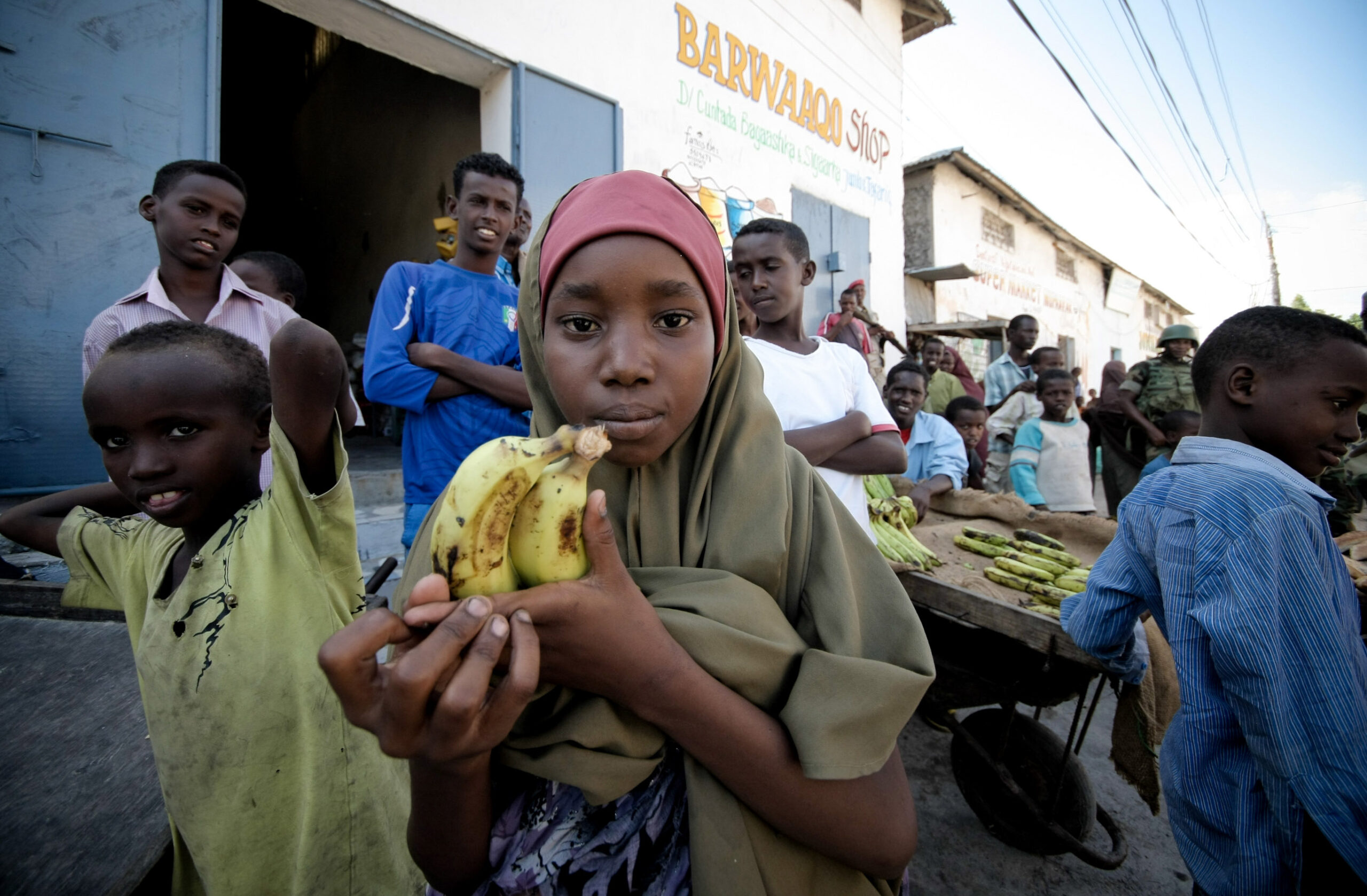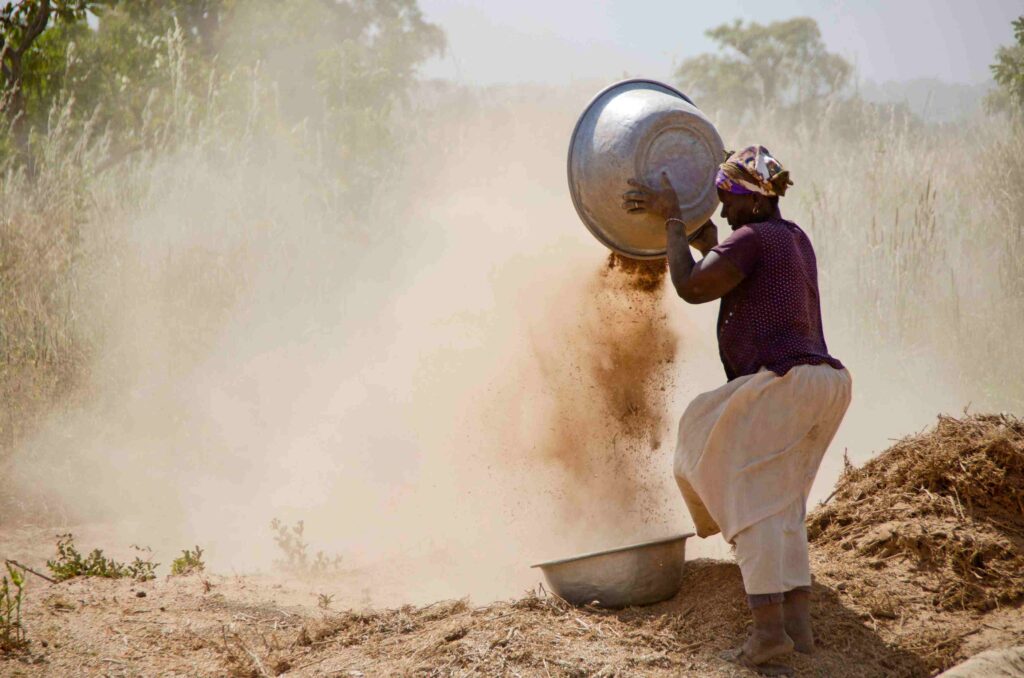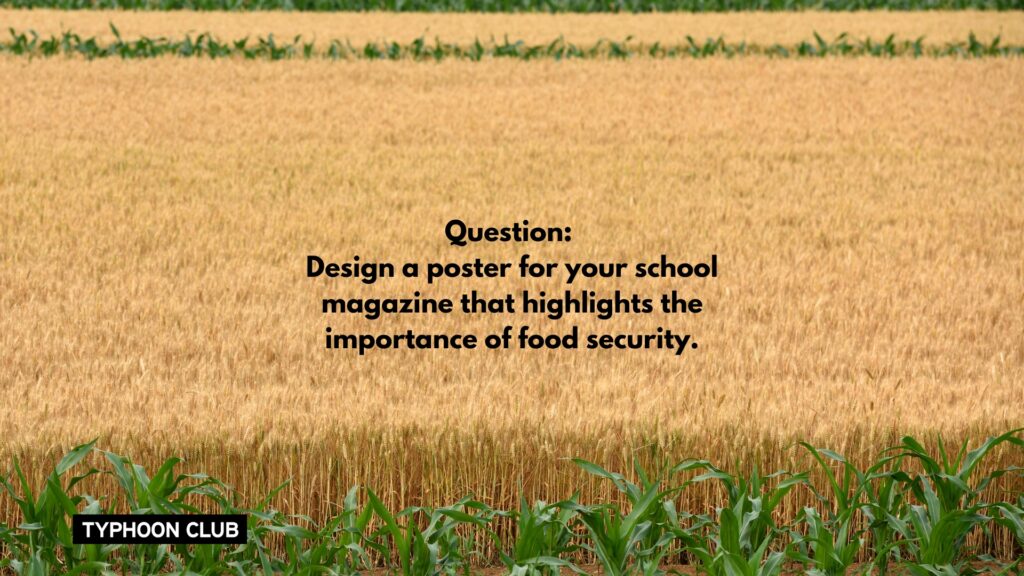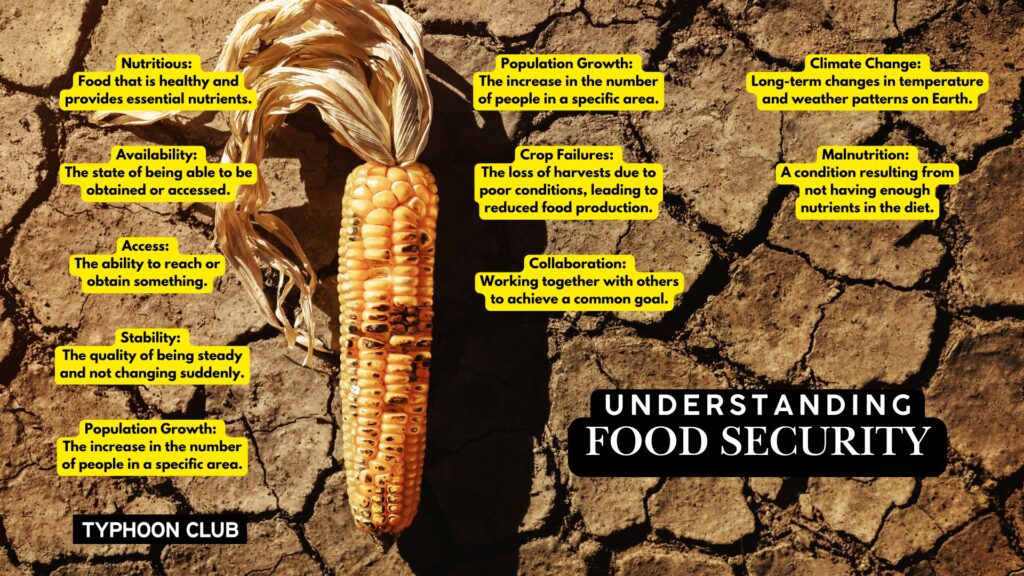
Food security means that all people have reliable access to enough safe and nutritious food to meet their needs and live healthy lives. It involves three main aspects: the availability of food, access to it, and stability over time. Food security is crucial for health, economic stability, and overall well-being.

The world faces significant challenges in achieving food security. One major issue is population growth. The global population is expected to exceed nine billion by 2050, increasing the demand for food. This growth requires a substantial rise in agricultural production, which is already limited by available land and resources.
Climate change is another critical challenge. Rising temperatures, unpredictable weather, and extreme events like floods and droughts disrupt farming. These changes can lead to crop failures and lower yields, affecting food availability. Farmers’ livelihoods are also at risk, as they rely on stable weather for their income.

Economic factors significantly impact food security as well. Many people, especially in developing countries, do not have enough money to buy sufficient food. Economic instability, changing food prices, and unemployment can worsen hunger and malnutrition. In some areas, conflict and political instability make it difficult to access food, leading to shortages and displacement.

Food waste is also a pressing problem. About one-third of all food produced globally is wasted, which could feed billions of people. Improving supply chains, storage, and consumer education can help reduce this waste.
Nutrition is an important part of food security that is often overlooked. Even when food is available, it may not provide the essential nutrients needed for a balanced diet. Malnutrition, whether from not getting enough food or consuming unhealthy options, poses serious health risks and can hinder economic growth.
Achieving food security is a complex challenge requiring coordinated efforts across various sectors. Addressing population growth, climate change, economic inequality, food waste, and nutrition is essential for creating a sustainable and fair food system. Collaborative strategies involving governments, organisations, and communities are crucial to ensuring that everyone has access to the food they need for a healthy and productive life.
Here’s a deeper explanation about food security:
QUESTION:

VOCABULARY:
